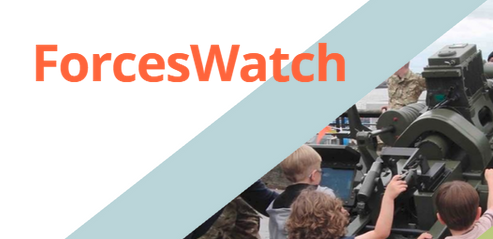This year, ForcesWatch produced the first season of a podcast titled ‘Warrior Nation.’ (A podcast is a radio programme turned into a computer file that people can download from the internet and listen to on their smartphone or computer – ed.)
Our aim was to create a platform for anti-militarist thinkers who might otherwise not be heard. We interviewed academics, activists and artists.
For our season finale, on 4 December, we will interview the political hip-hop artist Lowkey and activist Maya Evans in front of a live audience at Housmans Bookshop.
The process of becoming broadcasters has its challenges but is rewarding and has proven a great way to get new content about our core topics out into the world. Here’s some key things to think about when making and launching your own podcast!
The kit
Think about what you need technology-wise. We used a good-quality £109 Yeti microphone that can pick up everyone in a conversation, which we ran through a laptop.
We downloaded free software from Audacity to record and edit the audio files.
“Having two interviewers helped to create a conversation with momentum.”
Finally, we published the finished podcast through a platform called Buzzsprout which puts your content on their own site as well as on Spotify, Apple and others.
Test your sound setup and try to eliminate background noise. If the sound isn’t good quality, people are less likely to listen to the show!
The skills
If you’re new to radio/podcasting, you are going to have to learn some new skills. Things like editing your podcast, learning how to interview and learning how to speak into a microphone.
We found that having two interviewers helped to create a conversation with momentum.
If there are parts of the conversation that don’t quite work these can be carefully edited out.
Also edit for length – if the podcast is longer than it needs to be, people may not listen through to the end.
Enjoy the process and above all... just go on YouTube, look up the various tutorials and discussions and see how to do it all.
The attitude
Your new project might involve leaving your comfort zone, especially if you are a little shy.
To be a host you have to lead a conversation, you have to be a stickler for preparation, but also ready to adapt to what comes up in that conversation.
You are going to have to reach out to potential guests, maybe, in fact almost certainly, people whose views you value, who you admire and respect. This can be daunting: be brave, be tenacious and be forthright when reaching out.
The audience
Ask yourself these questions: Who do you want to reach? How are you going to do it?
For our podcast, we knew we would be looking to engage activists and academics, but we also wanted to pull in new listeners who might be just getting interested in militarism.
We cut a short clip of each episode as a trailer, and promoted them on social media. That way, we identified people who could amplify our content.
Finally, before anyone listens to your podcast, they will look at how it is branded and what you say about it.
Put plenty of time into what you call it, and how you describe it, and get an attractive podcast logo designed to the right dimensions so that it will grab people’s attention.


